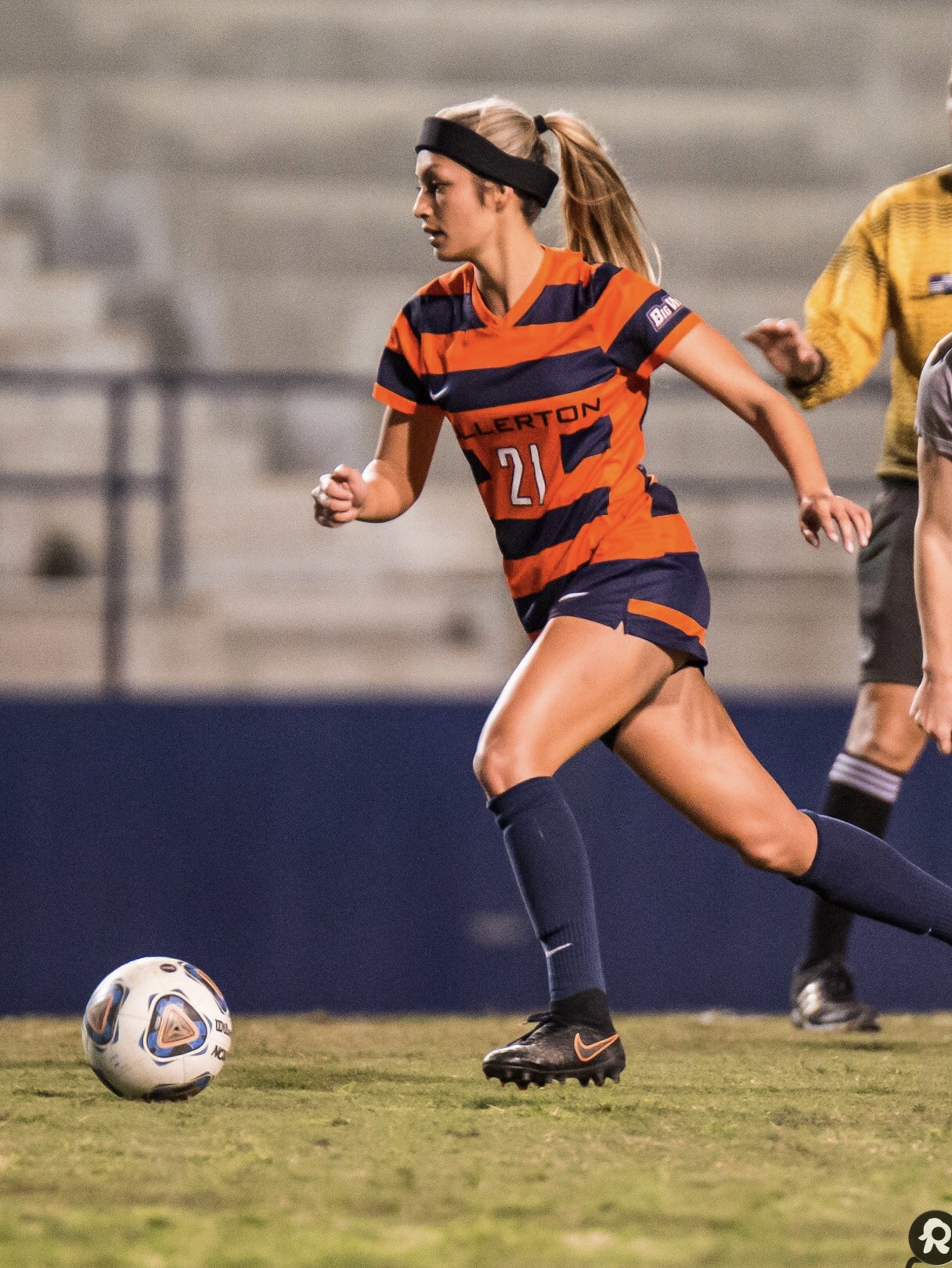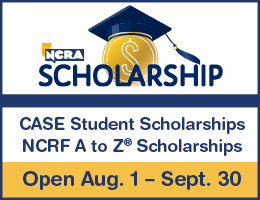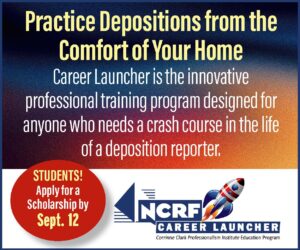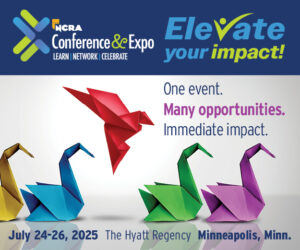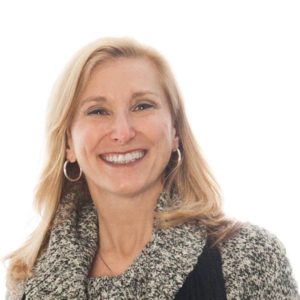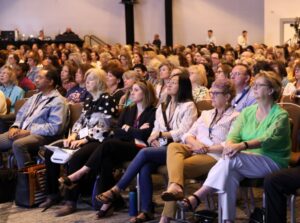Kaycee Hoover, RSR, attended California State University Fullerton (CSUF) where she played as a midfielder for the school’s women soccer team for three years and for the Guam women’s national team. Hoover received a scholarship at CSUF, graduating recently, and made the career transition from student athlete to court reporter.
“Kaycee Hoover, RSR, is a reporter we have been utilizing for a number of months now,” said Phyllis Craver Lykken, FAPR, RPR. “I helped train her for her internship, and she has been doing a wonderful job since joining us.”
Hoover was kind enough to grant an interview to the JCR Weekly on an array of topics to help gain insight into the mindset of a semi-professional athlete in the world of court reporting.
JCR | How did you learn about court reporting?
Kaycee Hoover (KH) | I learned about court reporting through my mother. She was a stay-at-home mom throughout my entire childhood, but she always said that if she could have picked a job, she would have loved to be a court reporter. As I got older, she always encouraged me to look into it and thought that it would be a career I would excel at. And I am so grateful for it!
JCR | How has being a student athlete helped prepare you for court reporting?
KH | Coming from a background of athletics was extremely beneficial to me in my court reporting school journey. I came into court reporting knowing that it would be hard work, but because of my background in soccer, I had a strong foundation of what it meant to practice at something every day and perform when needed. Of course, not even Division 1 athletics could fully prepare me for the mental fortitude that I would need to finish court reporting school, but it gave me the right perspective that was needed to never give up.
JCR | Is there any advice you would give to fellow student athletes who are researching careers?
KH | When any athlete retires from their sport, there is almost always a loss of identity. This happened to me after I earned my bachelor’s degree and retired from a sport and a way of life I had known since elementary school. But even though I struggled with that loss of identity, I knew doors would open to worlds I could have never dreamed of. My advice to student athletes looking to start or in search of new careers would be to have a strong sense of self-worth outside of your sport. It’s easier said than done, but doing the work to value yourself outside of your athletic accomplishments is going to springboard you into success in whichever field falls into your lap.
JCR | When did you join NCRA?
KH | I joined NCRA as a student member back in 2020 when I was in my higher speedbuilding class. When I started working, I was excited to become a professional member and join the community of so many mentors and teachers who helped me get there. The sense of community between the NCRA members has been the most beneficial aspect of being a member for me.
JCR | Are you currently working towards any certifications? If so, why that one?
KH | Currently, I am working on obtaining my RPR because the RPR certification is so valuable for freelance work and salary increases.
JCR | What challenges do you see the industry currently facing?
KH | As I am a new professional, one challenge I see our industry facing is the continued shortage. With remote work being in demand in a variety of states, I see the demand for more reporters as well as eager students willing to work but struggling to get those initial certifications for a variety of reasons. I think this shortage of students certifying in a timely manner to replace the reporters who are retiring can cause the court system to look at alternative means of obtaining a record. Putting our time and energy into students to help them certify will, in turn, help working reporters as well.
JCR | Is there an issue you’d like to bring awareness to as a student or young professional that the Association isn’t covering?
KH | One thing I would bring awareness to the Association is that a lot of these new reporters who get certified are hesitant to start working because they are looking for a professional mentor or someone to point the way. I think if students had more opportunities to find mentors and start doing that earlier in the schooling process, that would be beneficial. I also think new reporters would benefit from a general “what to do after you get certified” roadmap to help new reporters navigate the all-encompassing professional world.
JCR | How should we improve the recruitment and retention of the next generation of court reporters, captioners, and legal videographers?
KH | I think using social media would be a great way to get in touch with the younger generations. Platforms like TikTok and Instagram are a great way for young people to learn about so many things. I know I love to see working reporters who embrace social media and post about how rewarding and fulfilling this career is.
JCR | Do you have any tactics you’ve picked up on you’d like to share with readers?
KH | One thing I learned early on was that Google is my best friend. It can be scary hearing new terms, phrases, and slang of the professional world, but the internet provides access to heaps of knowledge. I also think using Facebook groups is a good way to learn these niche terms and concepts. Being open to learning and not being scared of what you don’t know is the best tactic I’ve had since becoming a working reporter.
JCR | Where do you see yourself professionally three years from now?
KH | In three years from now, I see myself being an official. I am hoping to get more certifications under my belt, including realtime. And above all, in three years I hope to be able to become a mentor to the students who are possibly starting court reporting school now.
Kaycee Hoover, RSR, is a freelance court reporter based in Washington state. She can be reached at kaycee.hoover21@gmail.com.
